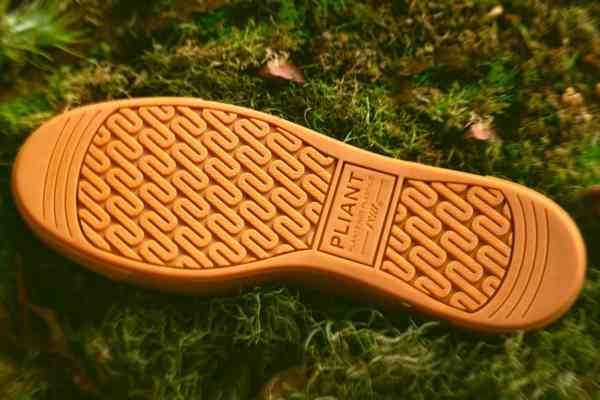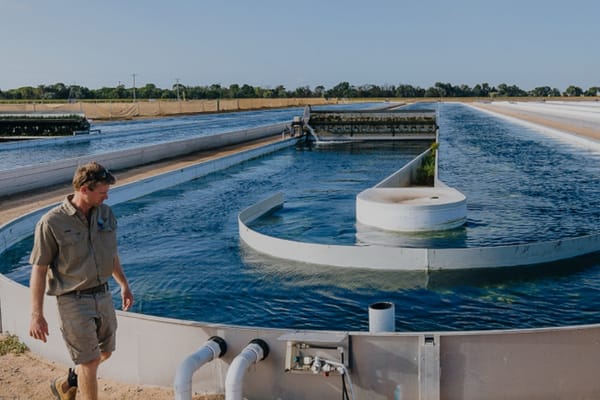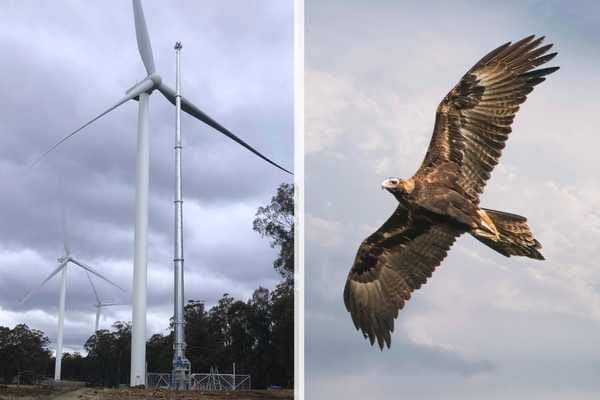Eco-friendly footwear takes the next step
The world's first all-natural rubber sole is hitting the sidewalk and leaving no microplastics in its wake.

The soles of most shoes leave a trail of microplastics with every step. That’s because most are made from synthetic rubbers or natural rubbers cured with petrochemicals.
Researchers say microplastics from shoe abrasion can significantly contaminate high-trafficked areas and also wash into waterways, harming marine life.
A 2018 German study estimated shoe sole wear and tear at 109g per capita per annum, making it the seventh biggest contributor to microplastics in the country. And in 2022, researchers from Konkuk University in Korea found that toxic chemicals leaching from different types of shoe soles could have negative effects on aquatic organisms.
Now a new type of sole is about to hit the market that is entirely free of plastic. PLIANT, the latest creation of US green chemistry startup NFW, is made with rubber from responsibly sourced Hevea brasiliensis trees, but unlike traditional rubber soles, PLIANT soles are cured using a plant-based solution.
PLIANT’s patented curative is made from cellulose, natural elastomers and plant oils to ensure the soles are recyclable and circular and can safely return to the earth at the end of their life.
No synthetics
“We’ve created a 100 per cent biobased alternative that eliminates toxic chemicals and microplastic pollution from the equation,” NFW says.
“The primary input is natural rubber, and our patented plant-based curative enables footwear-worthy performance with absolutely no synthetics for the first time.”
One of the footwear labels already planning to incorporate PLIANT into its range is Australian retailer Bared Footwear which plans to produce a shoe that is completely plastic free.
“Bared is proud to be the first Australian footwear label to introduce PLIANT. NFW is the master behind our plant-based vegan upper material, MIRUM," the company says.
“Sharing the same values when it comes to creating bio-based products, we turned to NFW to source a better material for our outsoles.”
NFW was founded in 2015 in Peoria, Illinois and has since been developing all-natural and zero plastic textiles, leather, and foam aimed at the global footwear, fashion, accessories, and automotive industries.
“We’ve created a 100 per cent biobased alternative that eliminates toxic chemicals and microplastic pollution from the equation.”
In 2022, the startup raised US$85 million in Series B funding from a range of international investors including Lewis & Clark AgriFood, Collaborative Fund, Tattarang, and Engine No.1.
Last year NFW scaled up production of MIRUM, a plant-based material for use in footwear, fashion, automotive, accessories, and upholstery. MIRUM can be made to look like anything from leather to carbon fiber but with no synthetic or animal inputs.
The ingredients that go into MIRUM are sourced from agricultural waste and include coconut husk fibre and rice hulls, as well as natural rubber, cotton, cork and vegetable oils.
Another company making waves in the budding biomaterials space is MycoWorks which recently opened a large factory in Union, South Carolina to produce a biomaterial called Reishi.
Reishi is made from a type of fungi called mycelium which is in turn used to create sustainable luxury leather called ‘Fine Mycelium’ that is both animal- and plastic-free.
Plant derivatives
Another emerging company in the space is Alt.Leather, an Australian-based startup that is using existing agricultural waste and plant derivatives to create a leather-like product that contains no plastic or animal products.
Alt.Leather recently closed a A$1.1 million seed round led by Wollemi Capital Group, the family investment firm of Tesla chair Robyn Denholm, with the investment to go toward R&D, filing a patent and creating sample production with local fashion brands.
The startup says it is “designing with end-of-life in mind, testing our material for recyclability and biodegradability”.
The majority of shoe soles are either 100 per cent petroleum-based – in other words synthetic – or contain only a very small per cent of natural rubber, according to NFW. In contrast, PLIANT's primary input is natural rubber plus a patented plant-based curative that is made from cellulose, natural elastomers and plant oils. NFW’s MIRUM material is also made from natural ingredients and these are mainly sourced from agricultural waste such as coconut husk fibre and rice hulls, as well as natural rubber, cotton, cork and vegetable oils.





